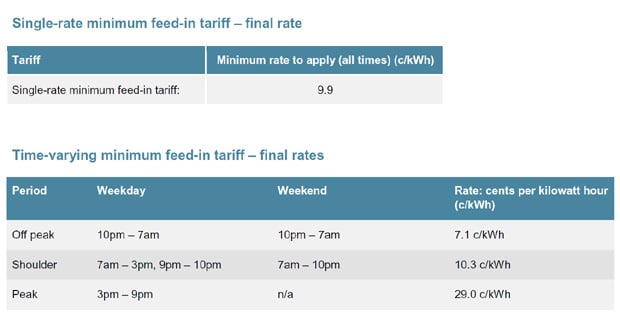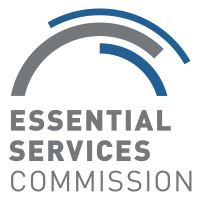The new Victorian feed-in tariff for solar system owners comes into effect from July 1, giving them the chance to maximise their return on energy fed into the grid.
Victoria’s Essential Services Commission (ESC) announced the new rates yesterday, which will be time-varying – different rates apply to different times of the day.
However, the use of time-varying tariffs will be voluntary for retailers for one year. This means retailers may offer an alternative flat rate of 9.9c/kWh. The ESC also suggested it may consider an extension to the transition period in the face of retailer objections.
The rates will require energy retailers to pay a minimum 29c/kWh for those who manage to export between 3pm and 9pm, a minimum rate of 10.3c/kWh for the time between 7am and 3pm, and a minimum rate of 7.1c/kWh (down from 7.2c) for anyone exporting between 10pm and 7am.
Transition year for time-varying implementation
The ESC expects the time varying tariffs will provide an incentive for households to install battery storage.

This is so households can take advantage of stored solar fed into the grid at night. It’s expected the demand for batteries in quotes for solar installation will increase in Victoria as a result.
ATA warning on new Victorian feed-in tariff cheats
The ESC acknowledged that consumers groups, the Alternative Technology Association and retailer Powershop raised concerns that consumers could charge their battery at night then “export” during the evening peak.
The ATA described such an outcome as “perverse”, because in effect coal-sourced powered would receive the solar feed-in tariff. The ESC noted the concern, but said it would be more relevant to future FiT setting processes.
“The scenario depicted above is unlikely to emerge to any material degree due to the low penetration of batteries,” the report said.
“We recognise the issue raised by stakeholders and will continue to work with the relevant government agencies on the appropriate FiT arrangements.”
However, Queensland has already introduced legislation to prevent such a scenario. It’s likely the ESC will make a similar decision in the next few years.












































